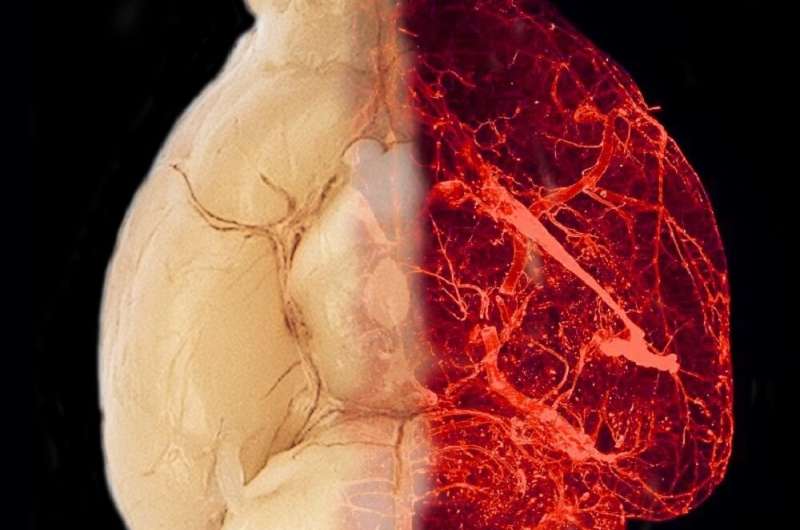Obesity and hypertension: Researchers discover novel mechanisms

Hypertension is a widespread comorbidity of patients with obesity that greatly increases the risk of mortality and disability. In recent years, researchers have found that a high-calorie diet increases the density of blood vessels (hypervascularization) in the hypothalamus—an important "eating control" area in our brain. Researchers hypothesized that elevated hormone levels of leptin are associated with a higher risk of developing hypertension. However, the exact mechanisms that contribute to the condensed growth of blood vessels in the hypothalamus were unknown.
New research conducted by Cristina García-Cáceres' research group at Helmholtz Zentrum München has now revealed that obese mice do not increase the number of blood vessels in the hypothalamus when they lack the hormone leptin. Leptin is produced by adipose tissue, is involved in the control of hunger and satiety, and plays an important role in the regulation of fat metabolism in humans and mammals.
Once the researchers increased the hormone leptin in these mice, certain brain cells, the astrocytes, boosted the production of a specific growth factor. This growth factor, in turn, promoted vessel growth. The result was an increased number of vessels in the hypothalamus (and no other brain region). The scientists thus demonstrated that leptin is mainly responsible for the increased concentration of vessels in the hypothalamus and that this process is mediated via astrocytes.
"We provide a paradigm shift in our understanding of how the hypothalamus controls blood pressure in obesity," explains first author Tim Gruber. "While previous research has focused primarily on neurons, our research highlights the new role of astrocytes, historically assumed less relevant than neurons, in controlling blood pressure".
Looking into the future, according to study leader Cristina García-Cáceres, one important question remains: How exactly do astrocytes communicate with neurons? "We have started to answer this question using in vivo real-time imaging of astrocyte-neuron circuit function in the hypothalamus," the researcher says.
More information: Tim Gruber et al, Obesity-associated hyperleptinemia alters the gliovascular interface of the hypothalamus to promote hypertension, Cell Metabolism (2021). DOI: 10.1016/j.cmet.2021.04.007




















